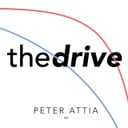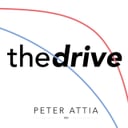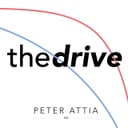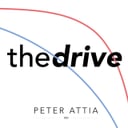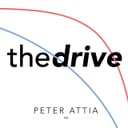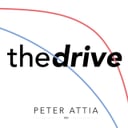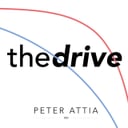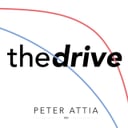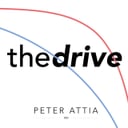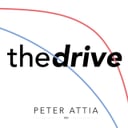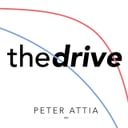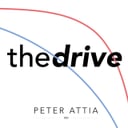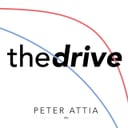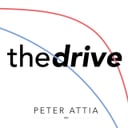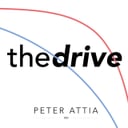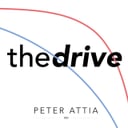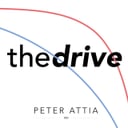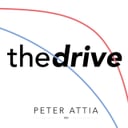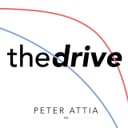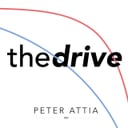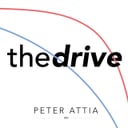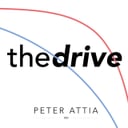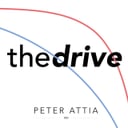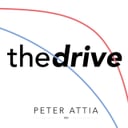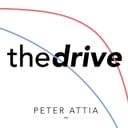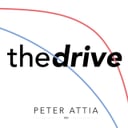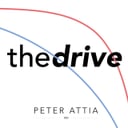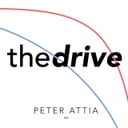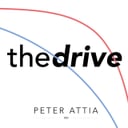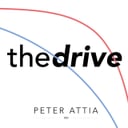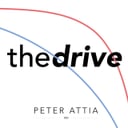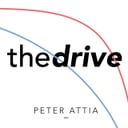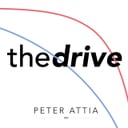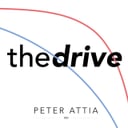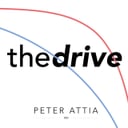
#351 ‒ Male fertility: optimizing reproductive health, diagnosing and treating infertility, and navigating testosterone replacement therapy | Paul Turek, M.D.
View the Show Notes Page for This EpisodeBecome a Member to Receive Exclusive ContentSign Up to Receive Peter’s Weekly NewsletterView our full terms of useThis is part one of a two-part mini-series on fertility and reproductive health, with next week's guest, Dr. Paula Amato, focusing on the female side of the equation. Paul Turek is a world-renowned expert in male fertility and reproductive health, the founder and medical director of the Turek Clinic, and host of the Talk with Turek podcast. In this episode, Paul explores the topic of male fertility, offering a detailed look at the complex and highly coordinated process of conception and the many challenges sperm face on their journey to fertilizing an egg. He shares fascinating insights into how sperm work together to navigate the female reproductive tract, how environmental factors like heat, stress, and toxins impact sperm quality, and what men can do to improve their reproductive health. Paul also dispels common myths about testosterone replacement therapy and its effects on fertility, providing strategies for preserving fertility while on TRT. The episode also highlights cutting-edge advances in reproductive medicine, from genetic testing and sperm sorting to emerging treatments for infertility.We discuss:0:00:00 - Intro0:01:12 - The incredibly complex and hostile journey sperm must take to fertilize an egg0:08:15 - How sperm are made: meiosis, genetic variation, and the continuous renewal influenced by environmental factors0:14:53 - The built-in filter that weeds out genetically abnormal sperm0:18:57 - How sperm are finalized in form and function: tail formation, energy storage, and chemical sensing abilities0:28:33 - How to optimize conception through the timing of sex, ejaculation frequency, and understanding the sperm lifecycle0:37:03 - Male infertility and Paul’s diagnostic approach: detailed history, a physical exam, and identifying red flags0:44:43 - Viral infections that can affect the testes and po...

#351 ‒ Male fertility: optimizing reproductive health, diagnosing and treating infertility, and navigating testosterone replacement therapy | Paul Turek, M.D.
View the Show Notes Page for This EpisodeBecome a Member to Receive Exclusive ContentSign Up to Receive Peter’s Weekly NewsletterView our full terms of useThis is part one of a two-part mini-series on fertility and reproductive health, with next week's guest, Dr. Paula Amato, focusing on the female side of the equation. Paul Turek is a world-renowned expert in male fertility and reproductive health, the founder and medical director of the Turek Clinic, and host of the Talk with Turek podcast. In this episode, Paul explores the topic of male fertility, offering a detailed look at the complex and highly coordinated process of conception and the many challenges sperm face on their journey to fertilizing an egg. He shares fascinating insights into how sperm work together to navigate the female reproductive tract, how environmental factors like heat, stress, and toxins impact sperm quality, and what men can do to improve their reproductive health. Paul also dispels common myths about testosterone replacement therapy and its effects on fertility, providing strategies for preserving fertility while on TRT. The episode also highlights cutting-edge advances in reproductive medicine, from genetic testing and sperm sorting to emerging treatments for infertility.We discuss:0:00:00 - Intro0:01:12 - The incredibly complex and hostile journey sperm must take to fertilize an egg0:08:15 - How sperm are made: meiosis, genetic variation, and the continuous renewal influenced by environmental factors0:14:53 - The built-in filter that weeds out genetically abnormal sperm0:18:57 - How sperm are finalized in form and function: tail formation, energy storage, and chemical sensing abilities0:28:33 - How to optimize conception through the timing of sex, ejaculation frequency, and understanding the sperm lifecycle0:37:03 - Male infertility and Paul’s diagnostic approach: detailed history, a physical exam, and identifying red flags0:44:43 - Viral infections that can affect the testes and po...

